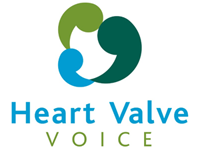Mental Health Support
Overview
Detection
Diagnosis
Surveillance
Preparing For Treatment
Treatment
Recovery
Friends and Family Support
Finding out you have a heart valve disease can be a very troubling time and whether you are a sibling, daughter/son, parent or friend. You may be a huge source of support for your loved one. We have outlined below all the ways in which you can help at the different stages of their journey.

Detection / Diagnosis / Surveillance
There can be a lot of anxiety that goes along with detection, before diagnosis we suggest staying off google. There are many inaccurate resources that can trigger a whole list of unnecessary stresses. Sit down and educate yourselves about the condition together from trusted sources. Once finding out how treatable and common heart valve disease is, this may ease some anxieties. Try and arrange distractions to take your loved ones mind off the topic, if there is a hobby they enjoy then encourage them to partake in that more often. You can also be a great help by making sure all medical appointments are attended and accompany them to those appointments, they might be nervous and having a friendly face with them can be very supportive.
- Stay off the internet
- Set aside time to learn together about it from trusted sources
- Distractions
- Attend appointment together
Pre Treatment:
The waiting game of treatment can be a stressful time, we recommend at this stage that you get organised. Throw yourselves into the planning around the surgery, look at what daily tasks your loved one does and designate them to someone else ahead of recovery to remove the stress of something not being done. Something as simple about putting the bins out can be a big reminder to your loved one at what they cannot do, so by thinking ahead you eliminate that.
Stock up the house, there are many ways to get prepared beforehand, if your loved one is someone who does the shopping, organise a delivery instead. Stock the house with a few extra things to elevate the stress of running out of anything, this also helps to take any pressure off of you.
Clear the diary for the months after, your loved one does not need reminding of what they cannot do so be mindful to not organise unrealistic plans that will inevitably have to be cancelled and this could lead to unnecessary upset.
- Get organised
- Stock up
- Clear diary
Post treatment / Recovery:
We advise both patient and family to educate themselves on the post treatment side effects, any new symptoms may be anxiety triggering so knowing about them beforehand can eliminate any of those stresses.
Many of our patients have been taken by surprise at how emotionally overwhelmed they are after treatment. They can send a lot of time reflecting on what a huge ordeal they have been through, one patient explained it as “the world was the same but I was different”. Try to keep this in mind and be prepared for your loved one to feel quite low in the days / weeks after. Encourage them to talk about how they are feeling and open up about any anxieties they might have. It might be an idea to educate yourself on the signs of depression and mental health illnesses and reach out to trusted resources if you feel your loved one may need additional help.
Attend any post treatment appointments with your loved one, they may not realise it, but even an routine echo after can be very triggering for them, having your support with them and ensuring them this is a normal feeling can be very reassuring.
Be mindful when planning your loved ones first trips out, for example a very short walk that you know has a bench or place to sit half way would be a great idea. Try to avoid situations that might overwhelm, such as busy times like the school run or commuting hours, the last thing you want is a knock that can damage their recovery and confidence. In addition manage visitors, it can be just as exhausting even though it is not physical and rest is vital.
- Up to date on post treatment symptoms
- Ok to not feel ok
- Attend appointment together
- Mindful of trips out
Mental Health Support
Overview
Detection
Diagnosis
Surveillance
Preparing For Treatment
Treatment
Recovery
Friends and Family Support



